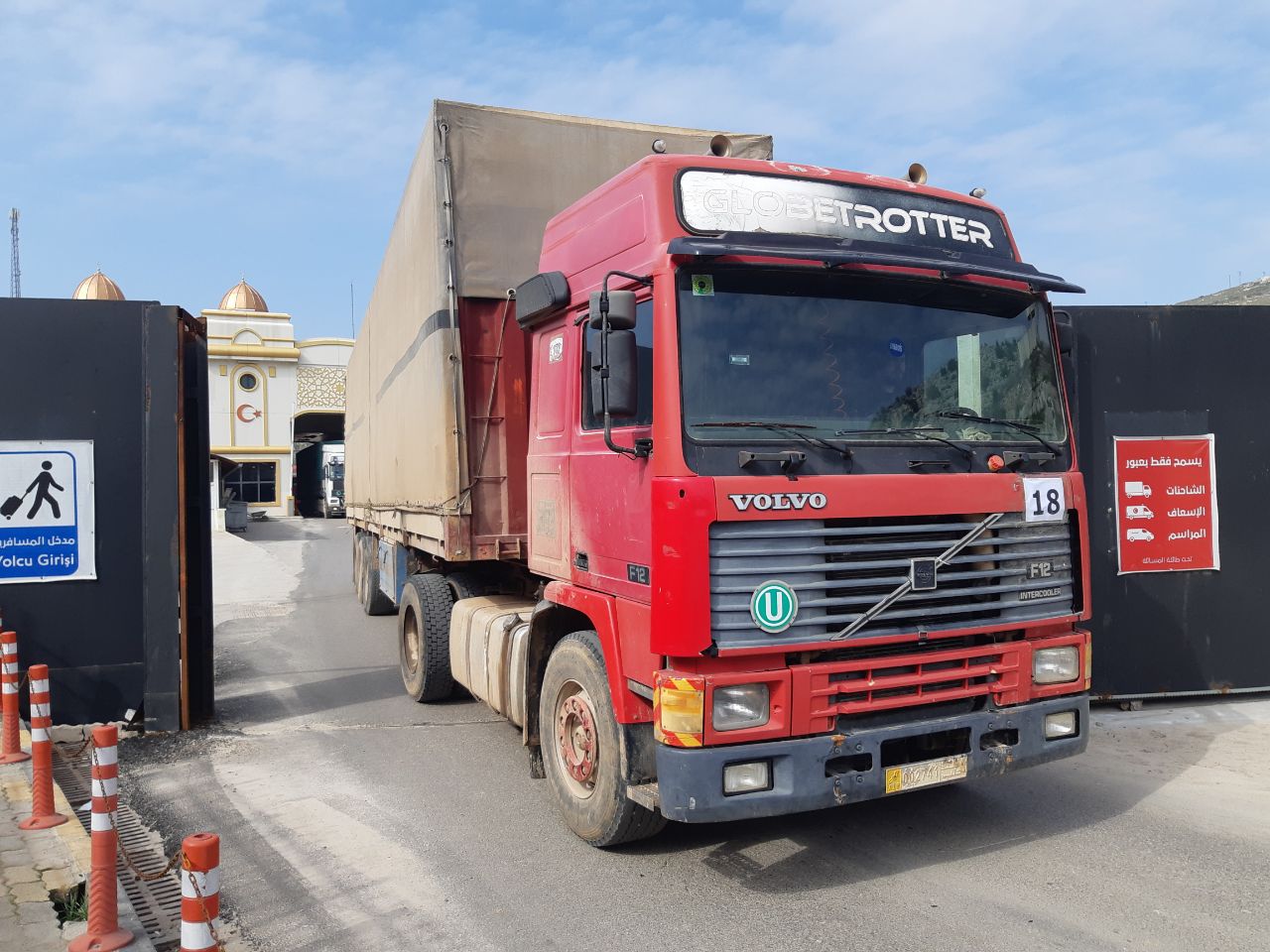
The United Nations Security Council will vote once again on Monday to renew permission for the UN to deliver humanitarian aid to northwest Syria from a crossing on the border with Turkey.
For nearly a decade, the UN has used this fragile cross-border mechanism to access civilians in opposition-held parts of northern Syria. But now there is growing concern that Russia will use its veto at the Security Council to end it.
Aid workers have warned that a failure to renew the UN’s mandate could spell disaster for Syrians in the northwest, where 4.1 million people still rely on humanitarian aid to survive. The UN delivers most of this aid through a single border crossing known as Bab al-Hawa.
In an open letter to the Security Council, a group of 32 NGOs operating in Syria described Bab al-Hawa as “the most critical supply line” for providing food, medical care and shelter.
In February, southern Turkey and northern Syria were hit by massive earthquakes and Syrians found themselves waiting days for life-saving assistance as the UN cited difficulties getting to Bab al-Hawa.
The Security Council has long been divided over Syria. Most members support cross-border operations, including France, the United Kingdom and the United States, permanent members who are calling for the mandate to be extended from six months to one year.
The UK’s special envoy for Syria, Ann Snow, said a longer mandate is needed to ensure the effectiveness of the response and avoid being “locked into an endless cycle of costly short-term agreements and pre-positioning supplies in case of abrupt closure”.
The UN also supports a 12-month extension, with David Carden, the UN’s deputy regional humanitarian coordinator, saying: “A minimum of 12 months is needed for effective early recovery programming, including the rehabilitation of earthquake-damaged schools, health facilities and homes.”
Russian obstructionism
However, Russia – also a permanent member of the Council with the power to veto any resolution – has voiced increasing scepticism about the UN’s role in delivering cross-border aid.
A close ally of Syrian President Bashar al-Assad, Russia has argued that all aid for Syria should be delivered through Damascus and that any cross-border assistance is a violation of Syria’s territorial sovereignty.
Russia and the Syrian regime want all humanitarian assistance intended for rebel-held territory to be delivered “cross-line”: across the conflict’s front lines in convoys negotiated by the warring parties.
In recent years, Russia has pressured the Council to reduce cross-border aid deliveries.
The original UN mandate from 2014 granted access through four border crossings, renewable on an annual basis. Since 2020, Russia has used the threat of a veto to whittle this down to one border crossing with a six-month renewal.
Moscow’s intentions for this month’s vote are unclear, but while diplomats are wary of making any firm predictions, some expressed cautious optimism that current circumstances may Russia reluctant to use its veto this time around.
According to analysts, the most pressing issue is Russia’s desire to maintain its working relationship with Turkey, which backs the Syrian opposition in northwest Syria.
“Ultimately, the cross-border mandate has a lot more to do with Russian-Turkish dynamics than it does with Western policy positions,” said Charles Lister, a senior fellow at the Middle East Institute. “For Ankara, the complete collapse of northwestern Syria as a result of an aid cut-off is perceived as an existential threat, and for now at least, there’s no apparent desire in Russia to trigger such a crisis for Turkey.”
Politicising humanitarian assistance
February’s earthquakes exposed the fragility of the cross-border mechanism and increased scrutiny of the UN’s humanitarian mission in Syria.
The UN was widely criticised for failing to respond immediately to the disaster, instead waiting for permission from al-Assad’s government before using alternative border crossings to access the northwest, a decision many say cost lives.
The UN has since apologised for its slow response but has resisted calls from NGOs and Syrian civil society to move away from relying on permission from al-Assad or the Security Council to deliver aid.
For Raed al-Saleh, head of the Syria Civil Defence, the Security Council’s role creates an unnecessary risk of politicising the delivery of humanitarian aid.
“The primary responsibility of the Security Council is to uphold global peace and security, not to hinder or control the distribution of life-saving aid, especially when there exists a legal framework that grants the United Nations the authority to deliver assistance without relying solely on the Security Council’s approval,” al-Saleh said.
Hisham Dirani, CEO of the Violet Organisation NGO, agreed, saying the UN and international donors should focus less on the politics of mandate renewal and more on issues such as decreasing the dependency of Syrians on emergency aid and ensuring, “more engagement for Syrian NGOs in leadership and decision-making and giving more space to Syrians themselves to decide what their problems are and what solutions they are looking for”.
But this has not been embraced by the UN or the major humanitarian donors. “Public pressure on UN bodies doesn’t seem to have had any effect,” Lister said. “In a strange way, [the earthquakes] appear to have created a new reality in which the UN’s institutional bias towards nation-state governments is continuing but more in the open.”
Donors and NGOs have quietly developed options that allow them to bypass the UN altogether and give money directly to NGOs operating in Syria. While these nascent initiatives avoid the need for a Security Council mandate, they cannot deliver assistance at the same scale as the UN system, which itself still lacks the funding to meet the scale of need.
“More funding is urgently needed for the humanitarian response,” the UN’s Carden said. “We are seriously concerned that the 2023 humanitarian response plan for Syria, which asks for $5.4bn, is only 12 percent funded halfway through the year.”







